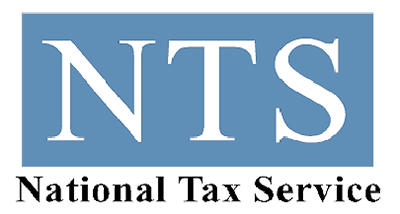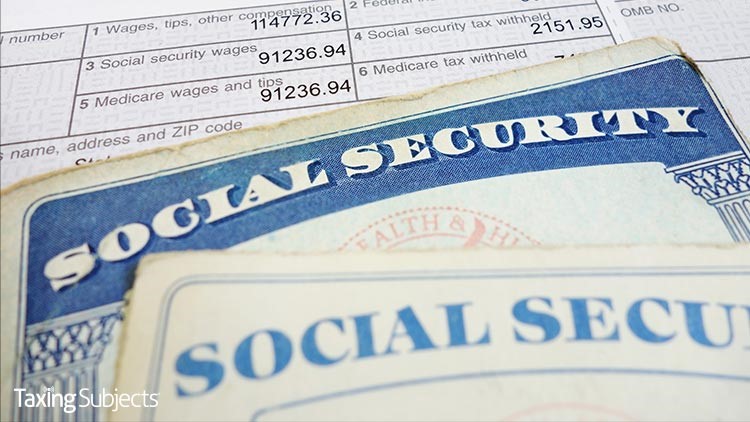by | Apr 3, 2020 | Tax Tips and News
One of the ways American business changed with the coronavirus is that thousands—if not millions—of employees are now working from home. The good news is that they’re getting the job done while practicing social distancing.
The bad news may be that both workers and employers might be a little closer to state and local tax measures than they thought.
Nexus and Other Minefields
Jared Walczak of the The Tax Foundation, one of the nation’s leading tax policy institutions, points up the risks some businesses may run in having a home-bound workforce. Most businesses, they say, are cautious about offering a work-at-home arrangement as an option simply because it may expose them to taxation in states where they might otherwise have too few contacts to be taxable. The technical term for this is “nexus.”
The coronavirus pandemic, of course, changed all that, making work-at-home the option of choice for many companies.
Nexus is a way of telling whether a business has enough presence in a state to pay state tax on its activities. Another yardstick—apportionment—lays out the division of the income to yield the appropriate share for a given state to tax. These two terms, Walczac writes, form the yardstick by which companies are measured by states.
“Without some standards for nexus and apportionment, there would be nothing to prevent states from taxing businesses that have no connection to that state, or from taxing the entirety of a business’s income even though it is also taxed in other states on much or all of that income as well,” Walczak states.
Federal law says states can’t use nexus against a corporation just because it solicits sales there. There has to be some kind of additional activity—such as having property in the state, or having employees working there. Many companies meet these requirements in most or all states—up to now, anyway.
The difference between nexus or no nexus can be tenuous. Walczak writes that even a single employee working from home in a state where the company lacked nexus before can be enough to qualify the company as taxable there.
Apportionment can push a company farther over the state’s line. Traditional apportionment takes payroll, property, and sales into account. While many states now use a single sales factor apportionment, if a state does still use three-factor apportionment where the amount of payroll in a state helps determine how much income is taxable, any employees working from home can increase apportionment.
Even in states that use the single sales factor method, working at home can make a big difference. Walczak uses the example of a company with extensive sales in a state, but doesn’t have nexus since it doesn’t have a sales team there, doesn’t service its goods there and ships into the state using freight lines instead of their own trucks.
“That company has no corporate income tax liability in the state into which it is selling—but suddenly, if even one employee is working remotely there, the state could begin taxing them, taking all of those sales into account in determining the share of net income to tax,” Walczak writes.
Withholding Nightmare
Typically, employers withhold for the state in which the work is performed, even if the employee lives in another state. The employee gets to take a credit against income taxes paid in the jurisdiction in which they worked against their tax liability where they reside.
Enter the work-at-home response to the coronavirus.
Now many of these employees live and work in the same state, and it’s not the state where the company has offices. Their company should now start withholding in the state where the employees work, even if it’s just temporary. This can be a costly compliance measure for businesses not already accustomed to having a workforce spread out over many states.
The situation, Walczak writes, only gets more complex when, because of the pandemic, an employee moves in with relatives due to comfort, convenience, or necessity. If that move entails travel to another state, it can introduce yet another wrinkle to the withholding tapestry.
The Tax Foundation suggests a couple of remedies for the hornets’ nest these conditions might create.
First, Walczak says states could disregard telework when it comes to figuring nexus and apportionment for the duration of the pandemic. Congress, he adds, also should consider a temporary nationwide provision that deems such telework to take place at an employee’s normal place of work for nexus and apportionment purposes.
Walczak’s conclusion says it best:
“During the present crisis, remote work has become a necessity for many people. The tax implications, however, are very real and potentially quite complex. States and the federal government have a role here in eliminating needless complexity and would do well to treat temporary pandemic-related telework as if the employee’s place of business had not changed.”
Our thanks to Jared Walczak and the Tax Foundation. For the complete article, check out the Tax Foundation website.
– Story provided by TaxingSubjects.com
by | Apr 2, 2020 | Tax Tips and News
The coronavirus pandemic has pushed the IRS to order its workforce to work from home. The IRS issued an email announcing the shift, and Accounting Today magazine obtained a copy of the email.
“As a result of recent OPM [U.S. Office of Personnel Management] guidance, starting Monday, March 30, 2020, the IRS is directing all employees, including employees who are currently not teleworking but whose work is portable or can be adapted to work off-site, to evacuate the work site and work from home (or an alternate location)—including employees who are not currently on a telework agreement,” said the memo. “All employees affected by this directive must take their equipment home to be prepared to work from home.”
The email directed workers to a chart that shows just which employees were expected to leave the premises and gave information to managers to better answer employee questions.
The memo also makes it clear that sick employees should not come in to the office, citing concerns for their own safety—and the safety of others.
The move to evacuate is no surprise to the union that represents IRS workers. Accounting Today reports the National Treasury Employees Union previously urged all federal agencies to close buildings housing 50 or more employees.
Latest in a Series of Steps
The IRS just recently closed its Practitioner Priority Service, which services the needs of tax professionals. The IRS website also said some other operations are being curtailed during the virus onslaught, but the agency is continuing to accept tax returns and send out refunds, both activities deemed mission-critical by the IRS.
The work-at-home order may have implications for the IRS’ latest project: sending out the stimulus payments that were approved by Congress to taxpayers. Those millions of checks and direct deposits are expected to be sent out in the next few weeks. The IRS cautions, though, checks sent through the mail will take longer to process.
– Story provided by TaxingSubjects.com
by | Apr 2, 2020 | Tax Tips and News
Economic Impact Payments are automatic for retirees.
The Treasury Department recently dispelled some uncertainty regarding how it would handle economic impact payments for Americans on Social Security. According to the press release, those who rely on Social Security payments will simply receive stimulus money via direct deposit.
Treasury is instructing the IRS to use Forms SSA-1099 and RRB-1099 to direct payments to those who don’t regularly file tax returns. Treasury Secretary Steven Mnuchin explained the rationale for the update: “We want to ensure that our senior citizens, individuals with disabilities, and low-income Americans receive Economic Impact Payments quickly and without undue burden.”
The clarification comes days after initial guidance recommended that those who don’t normally file tax returns “file a simple tax return to receive an economic impact payment,” specifically listing Social Security recipients alongside “low-income taxpayers, senior citizens, … [and] some veterans and individuals with disabilities.”
Some of the confusion seems to have arisen from the method used to determine economic impact payment eligibility: the income claimed in a recent tax return. Since these payments have a phase-out threshold, tax returns are being used to determine how much stimulus money—if any—taxpayers will receive. Now, Social Security recipients will automatically get their $1,200 payment.
Guidance isn’t yet clear as to what steps should be taken by low-income taxpayers who don’t receive Social Security benefits and aren’t required to file a tax return. Be sure to check the Taxing Subjects blog for other tax updates!
Source: “Social Security Recipients Will Automatically Receive Economic Impact Payments”
– Story provided by TaxingSubjects.com
by | Apr 1, 2020 | Tax Tips and News
COVID-19 could affect CPE reporting deadlines.
The National Association of State Boards of Accountancy (NASBA) on Tuesday announced that it was recommending state boards of accountancy across the country extend their CPE-completion deadlines to accommodate accountants affected by COVID-19 disruptions. This development comes on the heels of federal, state, and local governments implementing a number of public safety measures designed to reduce the spread of the coronavirus.
NASBA recommended extending current CPE deadlines to October 31, 2020. “If a CPA’s reporting period ended on March 31, 2020, the licensee would have until October 31, 2020, to complete the CPE requirements for that reporting period,” NASBA explained. “Similarly, if a CPA’s reporting period ended on June 30, 2020, the licensee would have until October 31, 2020, to complete the required CPE.”
As an advocacy and advisory group for state boards of accountancy, NASBA notes in the press release that it does not hold regulatory authority over those bodies. While individual boards of accountancy will make their own determinations concerning CPE deadlines for current and pending licensees, NASBA committed to cataloguing which states extend their CPE deadlines.
In the announcement, NASBA noted that their office—located in Nashville, TN—has already transitioned to remote work, underscoring the challenges faced by businesses across the country.
Source: “CPE Reporting Grace Period Due to COVID-19 – NASBA Recommendations”
– Story provided by TaxingSubjects.com




